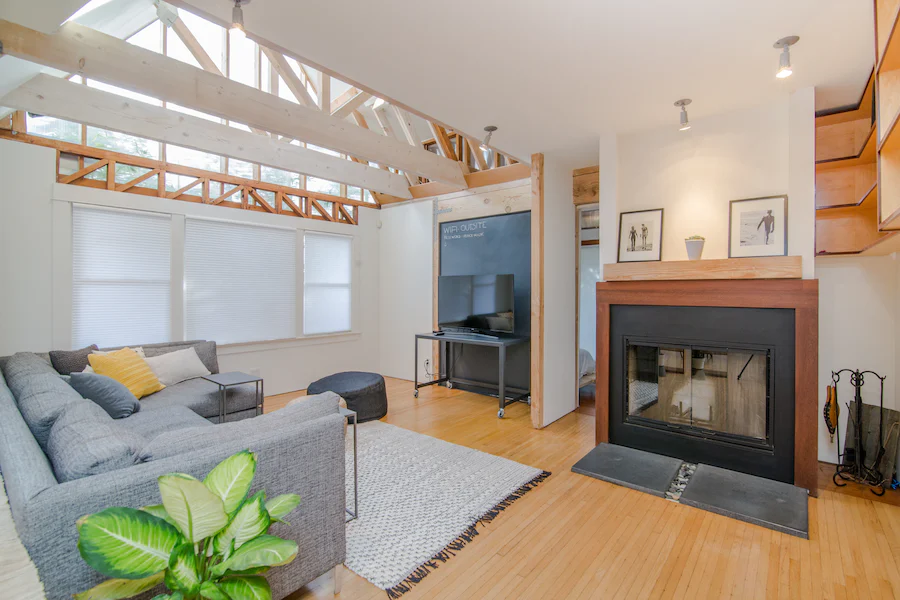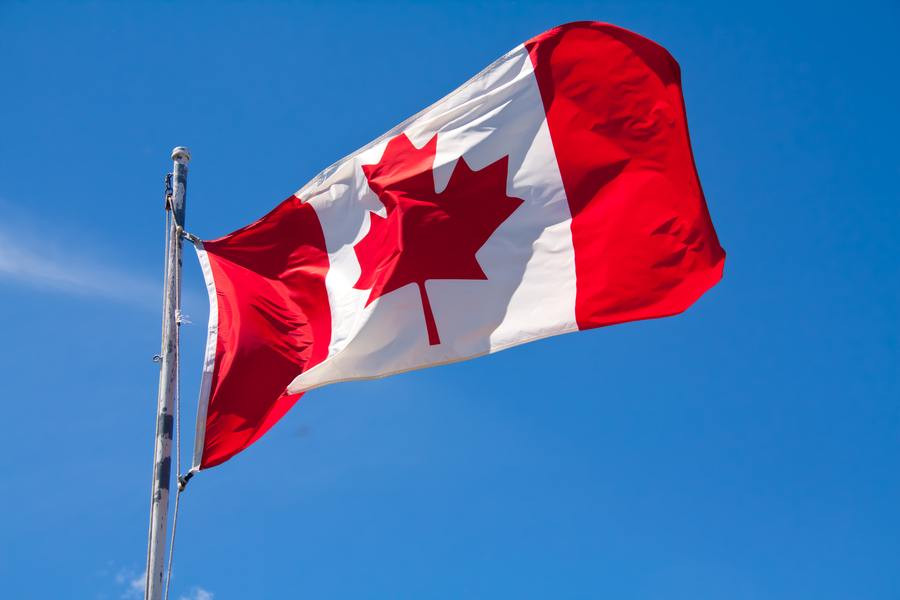Last Updated on October 24, 2023 by Clayton Jarvis
When CREW was putting together its most recent Property Forecast issue last fall, every economist we spoke to hinted at the potential for a recession in 2020. Trump-fuelled trade uncertainty would be the most likely culprit and the effects, while uncomfortable, would be minimal.
Now, not even three full months into 2020, the world is confronting a black swan event that has wrapped its wings around the entire planet, suffocating the global economy.
Real estate, as reliant as it is on human interaction, has been hit hard by COVID-19. Rather than simply speculate on how prices and sales will respond to the lack of activity, CREW instead reached out to some of our most trusted realtor friends to get a sense of what has happened to homebuying in various Canadian markets in the wake of the coronavirus outbreak.
Whatever the details, the message is simple: Stay. Home. And if you absolutely have to be in public, keep your distance.
How Has COVID-19 Affected Your Market in the Past Two Weeks?
Vanessa Roman, Pemberton Homes (Victoria, BC): We have seen a substantial shift in buyer and seller activity over the last couple of weeks. We’ve moved from the fast-paced spring market conditions to an almost complete halt in our day-to-day operations. For some sellers, this means cancelling their MLS listings completely. For others who have to sell or are selling vacant properties, it means no open houses, restricted viewing times to avoid people coming into contact with each other, and increased hygiene practices before and after showings.
For buyers, we are seeing our already low inventory levels drop further as sellers remove their listings from the market. The properties which remain are selling very quickly and in a flurry of multiple offers.
Brett Turner, Redline Real Estate (Calgary, AB): The market is currently winding down from the buyers and sellers who were actively in the market prior to the ramp up of social distancing measures. There are a lot of questions from both buyers and sellers regarding what to do and how to approach their spring and summer plans for real estate in the wake of social distancing measures and changes to the economy. Our associates are taking a lot of questions now about what consumers can expect in the coming months.
Taylor Hack, RE/MAX River City (Edmonton, AB): Our market has been heavily affected by COVID-19 over the last two weeks. Our only consolation was that we were ahead of the curve on this one. The daily stats showed house sales dropping 12 percent and condos close to 25 percent near the end of last week – before the announcements of schools closing. This allowed us to check in with our listed clients and start taking action to help the families we serve as they dealt with the uncertainty of this announcement.
Brett Ackerman, Royal LePage Regina Realty (Regina, SK): COVID-19 has been changing the way we do business every day. We are seeing action from sellers screening or not allowing showings at this time, which is unprecedented in a spring market.
Jordan Boyes, Boyes Real Estate (Saskatoon, SK): It hadn’t prior to last week, but we’re really starting to see it slow down now. Open houses have been taken down by our real estate board.
Marco Silvestri, RE/MAX Professionals (Winnipeg, MB): Our market here in Winnipeg has had a slowdown. Deals are still happening, but not anywhere near normal numbers for this time of year. We have had folks delaying the listings of homes and buyers are reluctant to enter people’s homes at this time. Our Spring Parade of Homes has been officially cancelled.
Thomas Pobojewski, Royal LePage Signature Realty (Mississauga, ON): Up until March 13 our market was firing on all cylinders. In fact, we had a home for sale in Mississauga that had 27 offers and sold for a record price. (The sellers debated whether to wait till April and I advised them to put the property on the market ASAP. Needless to say they were happy with the decision.) Since March 13, we have seen a decrease in the number of showings per listing and in new buyers entering the market.
Angela Langtry, Century 21 Immo-Plus (Montreal, QC): We are starting to feel a slowdown while people isolate themselves and are cautious about the economy. Some buyers have pulled back to wait-and-see mode. Many realtors are canceling open houses.
Thomas Bagogloo, RE/MAX Nova (Halifax, NS): There are fewer buyers in the market, more hesitation to view properties, and the buyers that were coming from out of town have cancelled their trips for the most part. What we have to be careful of is: will anybody putting an offer in still have the income required to close on it later on. Associated closing professionals, such as appraisers and banks and lawyers, will be limiting how they work, too. In changing how they work, this will affect, or delay, the closing process.
Mary Jane Webster, RE/MAX Charlottetown (Charlottetown, PEI): We have made the move to get everyone working from home. If an individual needs to show a property, it is policy for most offices to mandate hand sanitizer prior to and upon exiting a property. If a homeowner declines the showing, that is totally fine; it is not an issue of not acting in good faith, it is just the opposite. If we can do virtual showings, that is advised. Strict social distancing measures are in place.
Are people still looking at properties in person? What is your message to consumers who are still behaving as if a global pandemic is not occurring?
Vanessa Roman: I am not doing any in-person meetings or property viewings. My entire business has moved to electronic mediums. As realtors, we can still work but we need to adapt to the rapid changes in our business practices and do our part to limit the spread of the virus.
Brett Turner: There are still viewings happening, although the pace is slowing dramatically. Our brokerage made the proactive decision to cancel open houses, in-person meetings and client meetups. As for showings, it is up to the seller if they wish to allow people into their properties. In Calgary, if sellers are declining showings then they are asked to remove their properties from the market; at present, this is being managed on a case-by-case basis according to the preferences of the seller. We are asking all of our clients, agents and staff to observe the social distancing guidelines set forth by AHS.
Taylor Hack: As our province has declared a state of emergency, it’s key for us to talk to them about what’s required to be safe to be safe ourselves. Our message to our clients has been specific to them depending on their circumstance.
First, we want to talk about safety. For our sellers, if anyone in the property we have for sale is over 65 years of age or has increased risk due to an immunological challenge or other factors we will immediately cease showings and talk about options to withdraw their property from the market. Also, has anyone in their home recently travelled? Are they aware of guidelines related to self-quarantine?
For our buyers, what needs to change about our process in this new reality? Is there a decision maker that should not be viewing properties due to health reasons?
Also, we’re having the necessary conversations with the listing agent of the properties we intend to show so we can get an understanding of how informed they are of these evolving guidelines and their levels of precaution and risk management related to their listings.
We also talk about need. For any clients that have bought before they sell or are experiencing vacancy on a property, we have to recognize their concern for their financial wellbeing. How does this situation relate to the supply and demand of real estate daily and how can we adapt our strategy to execute?
Brett Ackerman: Showings from buyers have been slightly reduced, but I am still getting requests from agents on properties that are vacant. I think everyone right now needs to take a sober look at the urgency of the situation and decide if what they are doing is in the best interest of the general public and not a selfish personal decision.
Jordan Boyes: Some people are still looking, but it’s beginning to slow more and more. There’s hand sanitizer at the entrances, all lights are turned on prior to showings and we’re keeping doors open so people don’t have to touch anything.
Marco Silvestri: I have had a number of buyers showing homes but with extra precautionary measures for sure. Some of these homes are now not currently lived in, so I am being very careful. Virtual tours and Facebook Live is also another way to show a home.
Thomas Pobojewski: Many would-be buyers have decided to put their plans on hold and will wait to see what is the fall-out of the COVID-19 situation. That being said, there are “serious” buyers out there who have purchased since March 13. These are often people who have sold their existing homes and need a place to live. For the duration of social distancing, I would expect less competition for buyers.
Angela Langtry: Yes, people are still looking at properties in person, although not as many. Last week we were laughing about the pandemic being overblown by the media. This week it became real. I have not been in touch with anyone this past week who is not taking the situation seriously.
Thomas Bagogloo: Fewer people have been listing their properties because they don’t want to have people in their homes. But there are still some people who want to move forward with selling because they have their own personal reasons. They’re wiping down surfaces after every showing.
My message to consumers is to take this situation very serious because it can be transmitted without you even knowing about it. From what I understand, it can take up to 14 days to show symptoms, so on the tenth day you could think you’re healthy, but you’re actually exposing everyone you’re in contact with, which allows the virus to grow exponentially. Learn from the countries that have experienced more chaos and more casualties than us so we can limit what happens to our communities and country.
Mary Jane Webster: Some are still looking. We have left this up to individual realtors to assess their own level of comfort. If a client is looking, they must be in need of housing, which is a whole other subsequent consequence to what we are experiencing. Most are adhering to the guidelines set out by the Chief Health Officer and World Health Organization. Our best advice has been “the best way to come together is by staying apart.”
What Impact Do You Think the Current COVID-19 Destabilization Will Have on Prices and Selling Activity this Year?
Vanessa Roman: In my business, the virus has caused sale prices to climb as buyers scramble for the quickly dwindling pool of available properties. However, one thing we’ve learned from watching other countries – and real estate markets – deal with the virus around the world, is that change is the new constant. It’s difficult to predict whether this trend will continue in Victoria through the spring and into the summer as so much will depend on our infection rates.
Brett Turner: I think it’s obvious there will be far fewer transactions this year and prices may show a decline, but volumes will be lower so consumers shouldn’t read into the changes too much.
Consumers are facing very uncertain times, so most will choose to sit tight for now because the situation is unfolding so rapidly and there are more questions than answers at present, which does not create the environment conducive to big-ticket purchases like real estate.
If someone wanted to move prior to COVID-19, they will still be thinking about it. Canadians are now being asked to spend a lot more time in their properties and consume more of their own real estate. That will cause people to ask themselves if they are content with their housing, so while transactions will pause, I don’t feel that buyers will leave the market indefinitely. If the broader economy returns to normal, so will real estate.
Taylor Hack: Every situation is going to have strengths, weaknesses, opportunities and threats. The impact to the most common buyer, which is the average family, will likely be inventory shortages in the weeks after the state of emergency is lifted. Given that families are locked up in their homes, their ability to prepare for sale will likely be slowed.
In the months that follow we expect all the hallmarks of a damaged economy. Cost of funds my rise for lenders based on the losses they are experiencing for deferred mortgage payments. People may have lost their jobs or have to find different ones so their qualifications for financing may be affected.
Next year, this will likely have strengths for us here in Alberta. We’ve been in recession for a long time, so we welcome the other provinces to our boat and ask that they kindly grab a paddle. I think that the universal need to recover from the cost of the stimulus package will do great things for commodities that create the foundation of economies. Shopping local will have new meaning as the world is slowly unlocked based on each country’s ability to maintain a public health policy.
Brett Ackerman: The overall impact will depend on the length of time this lasts. My personal view is the market will be like a boiling pot of water with listing inventory piling up during this time of uncertainty. When the situation passes, I feel the market, especially considering the lower interest rates, will have many buyers jumping on the inventory. We may possibly even see an increase in prices in Regina’s market.
Jordan Boyes: I actually don’t think it’s going to change prices a ton right now. It will just slow transactions and increase the time properties spend on the market. I don’t think prices will begin to dip until things really drag out.
Marco Silvestri: I believe this too shall pass. The important thing right now is that we need to help out the people who need it.
Thomas Pobojewski: [The Toronto Real Estate Board] predicted double digit price growth in the GTA this year. I believe we will see 3-5% growth going forward. The economic fallout and possible recession will certainly have an impact.
Angela Langtry: Our real estate board is predicting a bit of a slowdown for the spring market and say that, in the short term, we can expect COVID-19 to have a negative impact on jobs and consumer confidence. However, they feel that overall impact will be temporary and will not have catastrophic consequences on property values, given the low inventory supply in Montreal and the recently lowered interest rates.
Thomas Bagogloo: We’re having our best year in decades in Halifax, with most properties generating competing offers. That has slowed down because there are fewer buyers, but we’ve been holding strong price-wise so far. There has been a slight softening, which I believe will continue. As a result, competing offers will be limited and I believe we will be back to more of a balanced market in the next couple of weeks.
There will be a continued slowdown, but this is a moving target and no one knows where it’s going to go.
Mary Jane Webster: Our year-to-date is very similar to 2019. The impact will be felt in the coming months and weeks. Our province is down to essential services and real estate and law firms fall into that grey area of “Is this essential?” Housing is obviously an essential need, and how the related services are effected will truly impact how we are able to meet the housing needs of our communities. We are all learning as we go.









